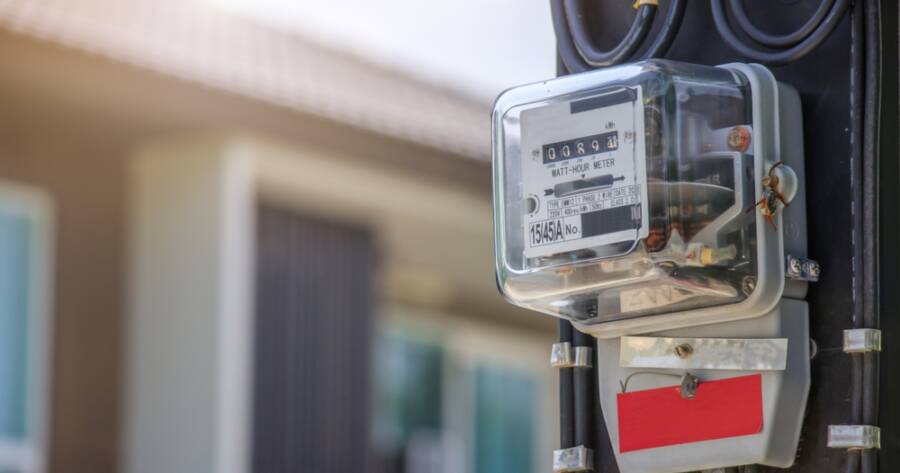Utility bills can take a substantial chunk out of your monthly budget, and with fluctuating energy prices, managing utility costs can be challenging. Fortunately, there are simple yet effective ways to reduce your utility bills without compromising your comfort. From making smart adjustments to your energy usage to adopting simple household habits, understand which practical tips will help you lower your monthly expenses.
1. Seal Drafts and Insulate Properly
One of the most effective ways to reduce your energy bills is to prevent heat or cool air from escaping your home. Drafty doors and windows can cause heating and cooling systems to work overtime, leading to higher energy bills. To prevent this, seal gaps and cracks around doors and windows using weatherstripping or caulking. Make sure your home is properly insulated to help regulate indoor temperatures, keeping your home cooler in the summer and warmer in the winter without using excess energy.
2. Use a Programmable Thermostat
Heating and cooling systems are often the biggest contributors to high utility bills. Installing a programmable thermostat allows you to automatically adjust the temperature based on your daily schedule. For example, you can set the temperature to be cooler when you’re sleeping or when no one is home, and warmer when everyone is present.
3. Switch to Energy-Efficient Appliances and Bulbs
Older appliances and lighting fixtures can be significant energy drains. If it’s within your budget, consider replacing outdated appliances with Energy Star-certified models. These energy-efficient appliances consume significantly less electricity, which can help you save on your monthly energy bills over time.
Another easy fix is replacing traditional incandescent light bulbs with LED bulbs. LED bulbs use up to 75% less energy and last longer, which means not only will you save on your electricity bill, but you’ll also reduce the cost of replacement bulbs.
4. Be Mindful of Your Water Usage
Water bills can be another area of concern, especially in households with multiple people. Simple changes in water usage habits can help lower water bills. Start by taking shorter showers and fixing any leaky faucets. A dripping faucet may not seem like a big deal, but it can waste hundreds of gallons of water over time, adding unnecessary costs.
5. Unplug Unused Electronics
Many people aren’t aware that even when electronics are turned off, they can still consume electricity if they’re plugged in. This phenomenon is called phantom power or standby power. Unplugging chargers, televisions, computers, and other devices when they’re not in use can help you save on your electricity bill.
Alternatively, consider using power strips. Plugging multiple devices into a power strip allows you to easily switch everything off with the flip of a single switch. Smart power strips are also available, which automatically cut power to devices that are not in use.
6. Adjust Laundry Habits
Small adjustments to your laundry routine can add up to big savings. Wash clothes in cold water whenever possible, as heating the water consumes a lot of energy. Also, make sure to wait until you have a full load before using the washing machine. This reduces the number of loads you do each week, saving both water and energy.
7. Take Advantage of Natural Light and Ventilation
Instead of relying on artificial lighting during the day, open curtains and blinds to let natural light in. Natural sunlight not only brightens up your living space but also helps reduce your reliance on electric lighting, cutting down on electricity costs.
8. Turn Off Lights When Not in Use
This may seem like a simple habit, but turning off lights when they’re not needed can make a significant impact on your energy consumption over time. Encourage everyone in your household to be mindful about switching off lights when leaving a room. You can also consider installing motion sensor lights in rooms that aren’t used frequently, such as hallways or bathrooms, to help automate this process.
9. Regular Maintenance of HVAC Systems
Your heating, ventilation, and air conditioning (HVAC) system should be maintained regularly to ensure it’s working efficiently. Replace air filters every 1-3 months to keep airflow unobstructed and ensure the system isn’t working harder than it needs to. Scheduling a yearly tune-up for your HVAC system can also help identify any issues before they become costly problems, leading to better performance and lower energy costs.
Learn More About Saving on Utilities
Reducing your utility bills doesn’t require huge investments or drastic changes. With a few simple adjustments to your daily habits and some smart upgrades, you can significantly cut down your monthly utility expenses.
Sealing drafts, using energy-efficient appliances, adjusting thermostat settings, and being mindful of water and energy usage are all straightforward strategies that can add up to significant savings. By being proactive and making these small changes, you’ll not only save money but also reduce your environmental impact—making your home a more energy-efficient and eco-friendly space.

